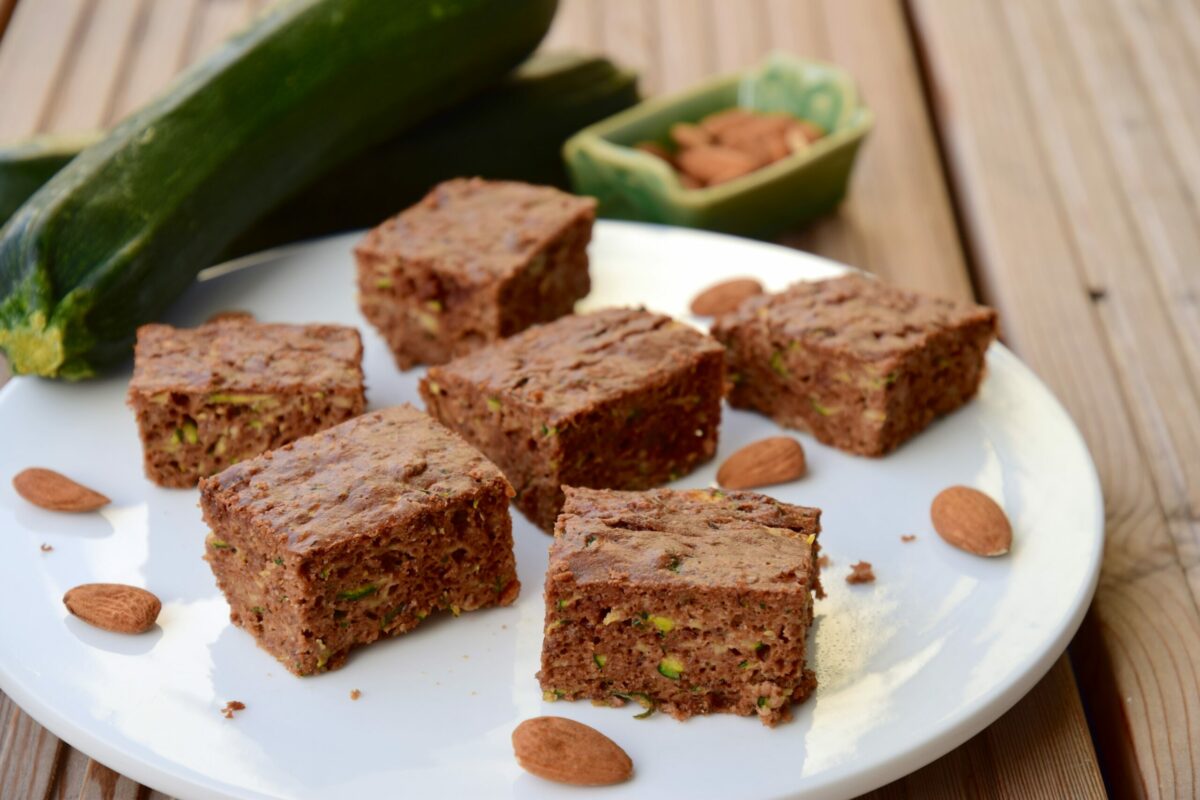Gluten-Free Products Demystified: Your Path to Delicious & Healthy Living!
Gluten-free products have gained immense popularity in recent years, catering to individuals with celiac disease, gluten sensitivity, or those seeking dietary alternatives.
These products are made without wheat, barley, and rye, which contain gluten. While they offer certain advantages, they also come with their fair share of disadvantages.
In this article, we will delve into the world of gluten-free products, exploring their benefits and potential drawbacks, helping you make informed choices.
Pros of Gluten-Free Products:

White konjac shirataki noodles, gluten free and no fat diet vegetarian and vegan Asian food close up
Celiac Disease Management
Gluten-free products are crucial for individuals with celiac disease, an autoimmune disorder where gluten triggers an immune response that damages the small intestine.
By eliminating gluten from their diet, those with celiac disease can avoid uncomfortable symptoms such as abdominal pain, diarrhea, and nutrient malabsorption, promoting better long-term health and preventing potential complications.
Digestive Health
For some individuals with gluten sensitivity or non-celiac gluten sensitivity, adopting a gluten-free diet can lead to improved digestive health.
Gluten can be difficult to digest for some people, and by eliminating it, they may experience reduced bloating, gas, and other gastrointestinal discomforts, contributing to better overall gut function and comfort.
Weight Management
Some individuals may experience weight loss or better weight management on a gluten-free diet. This is often due to a reduced intake of calorie-dense, gluten-containing foods like bread, pasta, and baked goods.
However, it’s important to note that the effectiveness of weight loss varies from person to person, and portion control and overall nutritional balance remain essential for sustainable weight management.
Increased Nutrient Intake

Embracing gluten-free products encourages individuals to incorporate more nutrient-rich foods into their diet.
Fruits, vegetables, legumes, and whole grains like quinoa and rice are common gluten-free choices that provide essential vitamins, minerals, and fiber, contributing to overall improved nutrient intake and a balanced diet.
Expanded Food Choices
The increasing demand for gluten-free products has led to a wider array of options available in the market.
From gluten-free bread, pasta, and snacks to pizza crusts and desserts, those with celiac disease or gluten sensitivity can now enjoy a diverse selection of foods, making their dietary experience more enjoyable and inclusive.
Enhanced Awareness
The popularity of gluten-free products has raised awareness about celiac disease and gluten sensitivity, leading to more understanding and support for individuals with these conditions.
This increased awareness has also influenced food manufacturers and restaurants to offer gluten-free options, making it easier for affected individuals to find suitable food choices.

Read more about the Pros of Gluten-Free Products:
Specialized Diets for Autism and Other Conditions
Some studies suggest that gluten-free diets may benefit individuals with autism spectrum disorders and other neurodevelopmental conditions. While research is ongoing, some families have reported improvements in behavior and communication when following gluten-free diets.
Reduced Inflammation
For certain individuals with inflammatory conditions, such as rheumatoid arthritis or inflammatory bowel disease, a gluten-free diet might help reduce inflammation and alleviate related symptoms.
Allergy Management:
For individuals with wheat allergies, adopting a gluten-free diet is essential to avoid allergic reactions.
Gluten-free products provide safe alternatives for those with this specific type of allergy.
Gluten Sensitivity Spectrum
Some individuals may experience milder gluten sensitivity symptoms that do not meet the criteria for celiac disease but can still benefit from a gluten-free diet to manage discomfort and improve overall well-being.
Promoting Whole Foods
Embracing gluten-free products can encourage people to focus on whole, unprocessed foods, leading to a diet rich in fruits, vegetables, lean proteins, and other wholesome choices.
Encouraging Culinary Exploration: Following a Gluten-free diet can inspire culinary creativity, prompting individuals to try new recipes, ingredients, and cooking techniques to adapt to their dietary needs.
Cons of Gluten-Free Products

toast with avocado, roasted chickpeas and mushrooms on a dark background. superfood concept. Healthy, clean eating. Vegan or gluten free diet.
Nutritional Imbalance
While gluten-free products offer benefits, some may lack the nutritional composition found in their gluten-containing counterparts.
Gluten-free alternatives can be lower in fiber, iron, and B vitamins, necessitating careful attention to dietary planning and potential supplementation to prevent nutrient deficiencies.
Processed Ingredients
To mimic the texture and taste of gluten-containing foods, many gluten-free products rely on processed ingredients, such as refined flours, starches, and additives.
These ingredients may have lower nutritional value and could contribute to less healthy food choices if consumed excessively.
Higher Cost
Gluten-free products are often more expensive than regular options. The specialized production processes, sourcing of ingredients, and smaller market demand contribute to the higher price tag, making it less affordable for some individuals to maintain a gluten-free diet.
Taste and Texture Differences
Gluten-free products may have distinct taste and texture profiles compared to traditional gluten-containing foods. For some consumers, this difference can be less satisfying, potentially impacting their enjoyment of gluten-free alternatives.
Cross-Contamination Risk
There is a risk of cross-contamination during the manufacturing or preparation of gluten-free products, especially in facilities that also handle gluten-containing ingredients.
Even trace amounts of gluten can be harmful to individuals with celiac disease or severe gluten sensitivity, making it essential for manufacturers and consumers to prioritize gluten-free handling practices.
Social and Emotional Impact
Adhering to a gluten-free diet can be challenging in social settings, as it may limit dining out options and lead to feelings of isolation.
Individuals may feel left out during events that center around gluten-containing foods, potentially impacting their emotional well-being.
Limited Food Options in Certain Areas
In some regions or smaller communities, the availability of gluten-free products may be limited, making it challenging for individuals with celiac disease or gluten sensitivity to access a diverse range of gluten-free choices.
Strict Dietary Adherence
Adhering to a gluten-free diet requires strict dietary adherence, as even small traces of gluten can trigger reactions in individuals with celiac disease or severe gluten sensitivity.
This can be challenging when dining out or attending social events where cross-contamination risks are higher.
Potential Lower Fiber Intake
Gluten-containing whole grains like wheat are excellent sources of dietary fiber, and by eliminating them from the diet, individuals may need to be mindful of other fiber sources to maintain a healthy digestive system.
Nutrition Label Confusion
Reading nutrition labels for hidden sources of gluten can be confusing and time-consuming.
People following gluten-free diets need to develop label-reading skills to identify gluten-containing ingredients, which can be overwhelming, especially for newcomers.
Gluten-Free Doesn’t Equal Healthy
The perception that all gluten-free products are healthier can lead to poor dietary choices.
Some gluten-free alternatives, such as cookies, chips, and processed snacks, can be high in sugar, unhealthy fats, and calories, leading to potential weight gain and nutritional imbalances.
Expense of Gluten-Free Specialties
Beyond basic gluten-free products, specialty gluten-free items like bread mixes, baking flour, and pasta may be even more expensive, adding to the financial burden of maintaining a gluten-free diet.
Social Isolation and Stigma
Following a gluten-free diet may lead to social isolation and the perception that it’s merely a trendy choice rather than a medical necessity.
People with celiac disease or gluten sensitivity may face skepticism or judgment, making it challenging to navigate social situations comfortably.
Difficulty Finding Safe Travel Food
Traveling can be especially tricky for individuals on a gluten-free diet. Ensuring access to safe gluten-free options while on the go can be challenging, and the risk of cross-contamination in unfamiliar environments may be higher.
It’s crucial to be aware of these potential drawbacks and take them into consideration when deciding to follow a gluten-free diet.
For individuals with celiac disease or gluten sensitivity, adhering to a gluten-free lifestyle is vital, but it’s equally essential to make well-informed choices and seek professional advice to ensure a nutritionally balanced and satisfying diet.
Conclusion – Gluten-Free Products: Unveiling the Pros and Cons
As with any dietary choice, it’s essential to weigh the pros and cons of gluten-free products, considering individual health needs, lifestyle, and preferences.
For those with celiac disease or gluten sensitivity, gluten-free products can be a lifeline, while others may find that gluten-containing foods can be part of a balanced and nutritious diet.
Consulting with a healthcare professional or a registered dietitian can help individuals make informed decisions regarding their dietary choices. So, this concludes the topic of Gluten-Free Products: Unveiling the Pros and Cons
FAQ About Gluten-Free Products: Unveiling the Pros and Cons
What are gluten-free products?
Gluten-free products are foods and beverages that do not contain gluten, a protein found in wheat, barley, and rye. These products are designed for individuals with celiac disease, gluten sensitivity, or those opting for a gluten-free diet for various reasons.
Are gluten-free products healthier than regular products?
Not necessarily. While gluten-free products can be healthier when they emphasize whole, naturally gluten-free foods, some commercially available options may be highly processed and contain added sugars or unhealthy fats. Reading nutrition labels is essential to make informed choices.
Can I lose weight by eating gluten-free products?
While some individuals may experience weight loss on a gluten-free diet due to reduced consumption of high-calorie gluten-containing foods, weight loss results can vary. Portion control and choosing nutrient-dense options are still critical for effective weight management.
Are gluten-free products safe for individuals without celiac disease?
Yes, gluten-free products can be safe for individuals without celiac disease or gluten sensitivity. However, there’s no health benefit to avoiding gluten unless you have a medical reason to do so. Focus on a balanced diet rich in whole grains, fruits, vegetables, and lean proteins.
Are all gluten-free products suitable for individuals with celiac disease?
Not all gluten-free products are suitable for those with celiac disease. Cross-contamination during production or preparation can introduce traces of gluten, causing reactions. Look for products with certified gluten-free labels and those made in dedicated gluten-free facilities.
Are gluten-free products more expensive?
Yes, gluten-free products are often more expensive due to specialized ingredients, production processes, and smaller market demand. This cost can pose a challenge for some individuals, but there are ways to manage expenses, such as focusing on naturally gluten-free foods.
Can children consume gluten-free products?
Answer: Children with celiac disease or gluten sensitivity require gluten-free diets to avoid health issues. However, for children without these conditions, a gluten-free diet may not be necessary. It’s important to consult a pediatrician or registered dietitian before making dietary changes.
How do I identify gluten in food labels?
Look for terms like wheat, barley, and rye on ingredient lists. Many products now carry a “gluten-free” label, indicating they meet specific gluten content standards. However, always read labels carefully, as gluten can hide in various forms under different names.
Can I eat oats on a gluten-free diet?
Pure oats are naturally gluten-free, but cross-contamination during processing is common. Look for certified gluten-free oats, as they are processed in dedicated facilities and tested to ensure they are safe for those with celiac disease or gluten sensitivity.
Is a gluten-free diet suitable for everyone?
A gluten-free diet is necessary for individuals with celiac disease, gluten sensitivity, or wheat allergies. For others, it’s not required and may limit nutrient intake if not carefully planned. Consulting with a healthcare professional or dietitian can help determine if a gluten-free diet is appropriate.
As an experienced WordPress blogger, I possess extensive expertise in constructing captivating blog websites. My proficiency extends to various areas, including content writing, meticulous niche and keyword research, and the implementation of on-page SEO techniques to maximize visibility and engagement.



